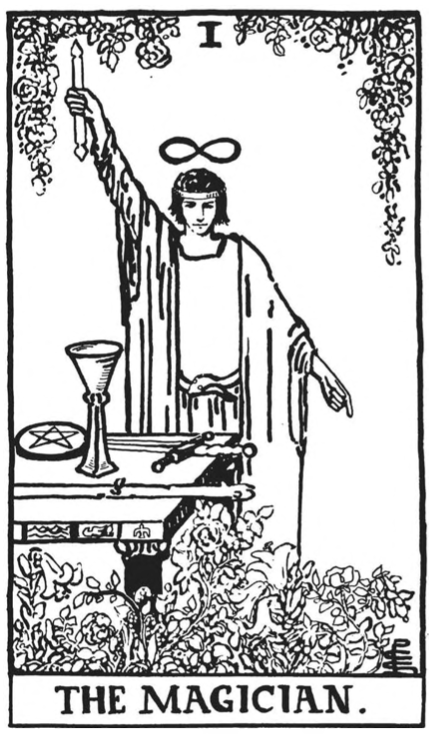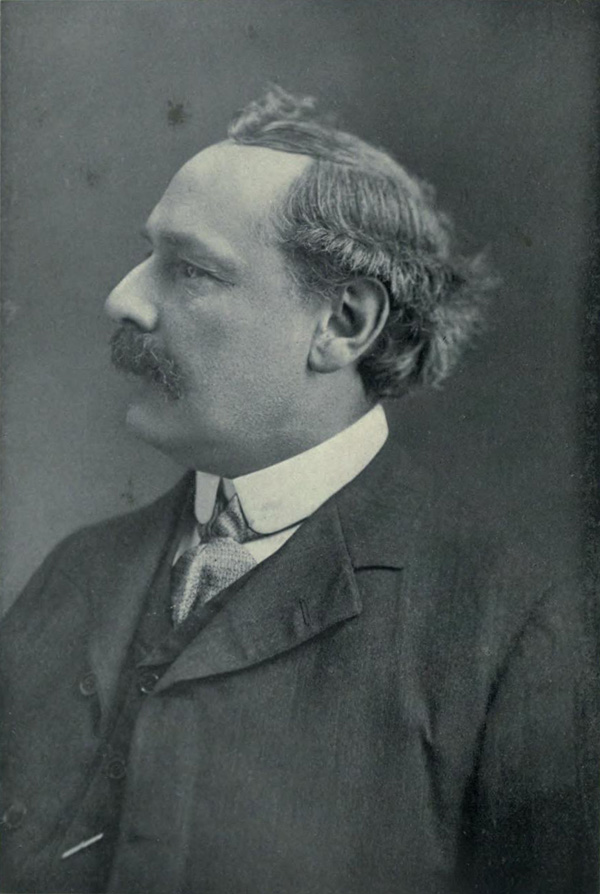Arthur Edward Waite
Arthur Edward Waite (2 October 1857 – 19 May 1942) was an American-born British poet and scholarly mystic who wrote extensively on occult and esoteric matters, and was the co-creator of the Rider-Waite Tarot deck (also called the Rider–Waite–Smith or Waite–Smith deck). As his biographer R. A. Gilbert described him, "Waite's name has survived because he was the first to attempt a systematic study of the history of western occultism—viewed as a spiritual tradition rather than as aspects of proto-science or as the pathology of religion."
Early life
Waite was born in Brooklyn, New York, United States. Waite's father, Capt. Charles F. Waite, died when he was very young, and his widowed mother, Emma Lovell, returned to her home country of England, where he was then raised. They were well enough off to educate Waite at a small private school in North London. When he was 13, he was educated at St. Charles' College. When he left school to become a clerk he wrote verse in his spare time. In 1863 Waite's mother converted to Catholicism. The death of his sister Frederika Waite in 1874 soon attracted him into psychical research. At 21, he began to read regularly in the Library of the British Museum, studying many branches of esotericism. In 1881 Waite discovered the writings of Eliphas Levi.
When Waite was almost 30 he married Ada Lakeman (also called "Lucasta"), and they had one daughter, Sybil. Some time after Lucasta's death in 1924, Waite married Mary Broadbent Schofield. He spent most of his life in or near London, connected to various publishing houses and editing a magazine, The Unknown World.
From 1900 to 1909, Waite earned a living as a manager for Horlicks, the manufacturer of malted milk.
In the Golden Dawn
Waite joined the Outer Order of the Hermetic Order of the Golden Dawn in January 1891 after being introduced by E.W. Berridge. In 1893 he withdrew from the Golden Dawn. In 1896 he rejoined the Outer Order of the Golden Dawn. In 1899 he entered the Second order of the Golden Dawn. He became a Freemason in 1901, and entered the Societas Rosicruciana in Anglia in 1902. In 1903 Waite founded the Independent and Rectified Order R. R. et A. C. This Order was disbanded in 1914. The Golden Dawn was torn by internal feuding until Waite's departure in 1914; in July 1915 he formed the Fellowship of the Rosy Cross, not to be confused with the Societas Rosicruciana. By that time there existed some half-dozen offshoots from the original Golden Dawn, and as a whole it never recovered.
Aleister Crowley, Waite's foe, referred to him as the villainous "Arthwate" in his novel Moonchild and referred to him as "Dead Waite" in his magazine Equinox. H. P. Lovecraft has a villainous wizard in his short story "The Thing on the Doorstep" called Ephraim Waite; according to Robert M. Price, this character was based on Waite.
Author and scholar

Waite was a prolific author and many of his works were well received in the esoteric circles of his time, but his lack of academic training is visible in his limitations as a historian and in his belittling of other authors.
He wrote occult texts on subjects including divination, esotericism, Rosicrucianism, Freemasonry, and ritual magic, Kabbalism and alchemy; he also translated and reissued several mystical and alchemical works. He wrote about the Holy Grail, influenced by his friendship with Arthur Machen.
Waite was a regular contributor to the esoteric magazine The Occult Review and wrote many articles on magic, Tarot, and divination.
A number of his volumes remain in print, including The Book of Ceremonial Magic (1911), The Holy Kabbalah (1929), A New Encyclopedia of Freemasonry (1921), and his edited translation of Eliphas Levi's 1896 Transcendental Magic, its Doctrine and Ritual (1910), having been reprinted in recent years. Waite also wrote two allegorical fantasy novels, Prince Starbeam (1889) and The Quest of the Golden Stairs (1893), and edited Elfin Music, an anthology of poetry based on English fairy folklore.
Rider-Waite Tarot
Waite is best known for his involvement with the Rider-Waite Tarot deck, first published in 1910, with illustrations by Golden Dawn member Pamela Colman Smith. Waite authored the deck's companion volume, the The Key to the Tarot, republished in expanded form in 1911 as the Pictorial Key to the Tarot, a guide to Tarot reading. The Rider–Waite–Smith tarot was notable for illustrating all 78 cards fully, at a time when only the 22 Major Arcana were typically illustrated.
